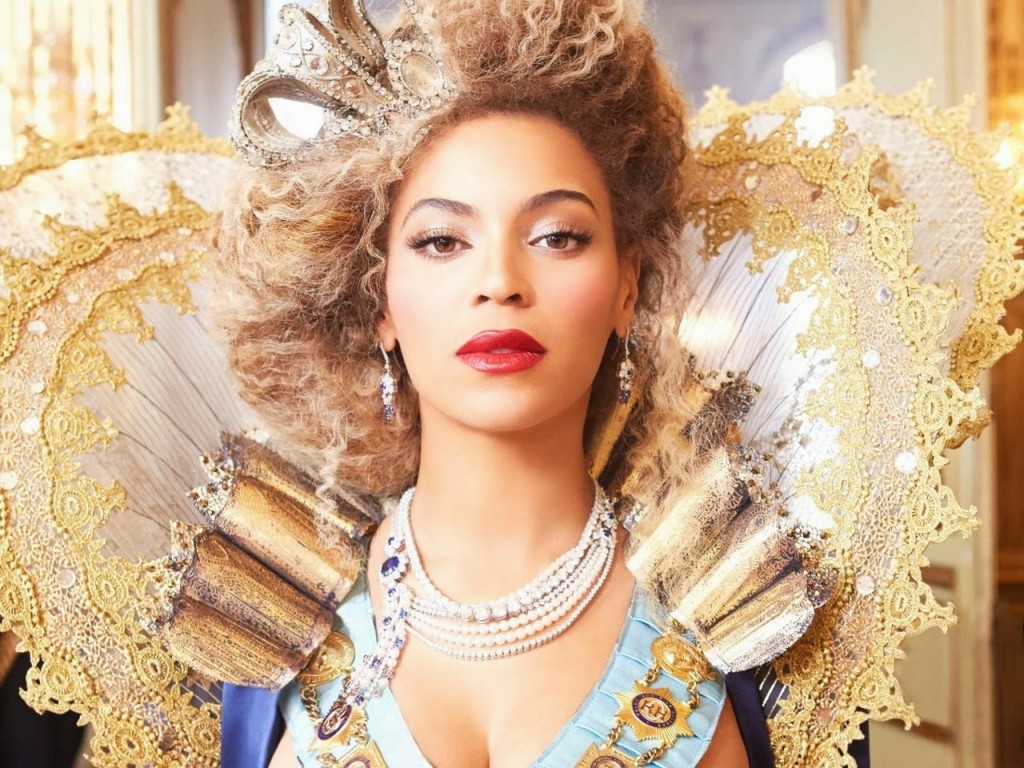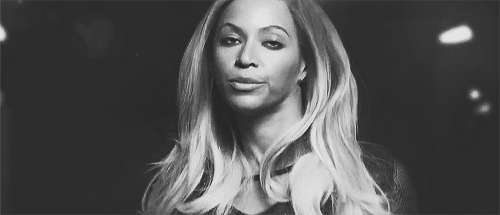THIS WEEK in retouching news, untouched photos of Queen Bey herself were leaked from a L’Oreal makeup campaign she posed for a few years back (which we refuse to post ourselves, btw). They’re making quite the rounds because, contrary to popular belief and the laws of physics as we thought we knew them, apparently Beyoncé isn’t perfect. Which is perfectly, absolutely fine, since that realization doesn’t detract at all from what an amazing person and performer she is. Unsurprisingly, many of her fans are sticking up for her as opposed to criticizing her, and the site that posted the photos ended up taking them down because they started receiving death threats from Her Majesty’s Beyhive. Case closed. The question still remains, though: why on earth is the exposure of real bodies (and, in this case, faces) news over and over again?
If no one cares that Beyoncé has zits, then why are the photos leaked in the first place? If the photos of Beyoncé’s cheek zits make someone feel better about their own zits, then cool. But, come on: aren’t we past needing to know that it’s okay to have zits because Beyoncé has them? When androids start modeling for lipstick commercials, then I guess that will be a different story, but as long as humans are involved, it’s safe to say that they are going to have human skin, prone to acne and blemishes the same as any other human’s, no matter how bold and beautiful of a life they live.
There shouldn’t be anything surprising, and definitely nothing damaging, about seeing the difference between a real photo and a Photoshopped one in a case like this. The original photos aren’t going to sell any mascara. No one’s original photos would. Okay, maybe Kate Moss’ would. Besides removing zits, there’s not much retouching done in the photos that should make us even think of batting an eye: the color corrections and shadow removal aren’t at all that different from the way that, let’s say, a hamburger might be Photoshopped for a print ad. Be real: you know you’re not going to see a squashed soggy-bun burger commercial and think, “Damn, let me spend some of my hard-earned money on that.” Not that I’m comparing Beyoncé to a hamburger. You can retract those stingers, Beyhive.
The only thing stranger than the shock we feign to feel when untouched photos get leaked is how we celebrate certain celebrities in all their flawed glory but revel in taking down others over rumors and false accusations altogether — Renée Zellwegger and Uma Thurman, anybody? Well, someone (more than just “someone,” actually — Star Magazine has an estimated readership of 6.7 million people) is buying all those gossip rags that think unflattering pictures of stars looking “fatter than normal” in their bikinis is the definition of breaking news, so apparently there are people who think unretouched photos are gold, besides media execs and unscrupulous paparazzi. Sometimes they’re offensive, in the case of Beyoncé (at least, if you ask her fans), but apparently it’s okay the rest of the time? So, do you need your own cadre of die-hard followers numbering in the millions before you can rest assured that leaked unretouched photos of your face won’t cause a huge backlash or churn the rumor mill?
Here’s another question: isn’t everyone using smoothing tools, filters, and “beautifying” apps on their own faces and bodies on Instagram? Don’t lie. There’s no shame in a little touch-up game. But there is shame in causing such an outraged ruckus over celebrities doing the exact same thing that we’re doing. Which way do we want it, people: perfect or not? We can’t have both.
In case anyone forgot, advertising is there to sell stuff, not to make us all equal. That’s why we have moms — or best friends, or nice men or women we like, hopefully — to tell us that we’re the most beautiful girls in the world. “You’re so beautiful you don’t even need makeup, girl!” (You know, all that bullsh*t we pretend we don’t like to hear but we secretly love? Quit playin’ — you know.) So no one should be surprised that Beyoncé was Photoshopped for an advertisement, because that’s how advertising works. No one should be surprised that Beyoncé isn’t perfect, and no one should be sending anyone death threats because she isn’t. Let’s just throw out the assumption that any person at all might be perfect, and then we can stop worrying about how much better or worse that billboard looks than we do.


















